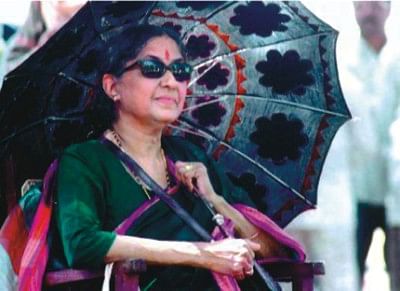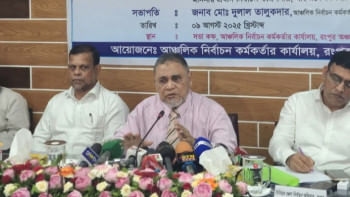Kamala Das: A Tribute

Kamala Das, aka Madhavikutty, aka Kamala Suraiya, b. 31 March 1934, d. 31 May 2009. Multiple names; two faiths; two mediums of creative expression - painting and writing, the latter in two languages and several genres; many interests; many controversies. Her name will long resonate in our consciousness, thanks to her bold assertiveness, whether in confessional verse or self-revelatory prose.
Like most of her non-Malayali readers, I know Kamala Das from two books published in the mid-seventies: The Old Playhouse and Other Poems (Madras: Orient Longman, 1975), which incorporates two earlier collections, Summer in Calcutta (1965) and The Descendants (1967), and the autobiography My Story (Delhi: Sterling Publishers, 1976). Here, for the first time in print, we encounter the modern Indian woman talking unabashedly of her sexuality, and the thrills and anguish of illicit relationships.
Paradoxically enough, her early years seemed quite traditional, with marriage at the age of fifteen to a man fifteen years older. She had been born into the matrilineal Nayyar clan of Kerala, but both her parents were influenced by Gandhi, whom she accuses of being "unashamedly patriarchal". She disliked Gandhian austerity and "yearned to wear coloured silks and jewellery". Her mother, Nalappatt Balamani Amma, was a popular Malayali poet who celebrated traditional values. Young Kamala noted with disquiet that her mother's verses about marital bliss were belied by the acrimonious exchanges she overheard coming from her parents bedroom. She knew what to avoid in her own writing. When she started writing fiction in Malayalam - on themes some might consider scandalous - she hid behind the pen-name of Madhavikutty, so that her puritanical grandmother would not know she was the author.
Modern Indian writers have generally followed Western trends, but Kamala Das was a trend-setter. Since her first poetry collection came out in 1965, the same year as Sylvia Plath's path-breaking Ariel, she is one of the pioneers of women's confessional poetry. She has also candidly described the trick behind confessional writing. In an interview with Eunice de Souza she confesses that in My Story she "exaggerated a bit"; "If it's red, make it redder. It's the artist's freedom to deepen the colour."
Unsurprisingly, Kamala Das has become something of a feminist icon, though she was indifferent to such labels: "Others see me as a feminist. I see myself as a feminine creature who loves the company of brilliant men and women. I am not very gender conscious." She had actually been very anti-feminist on the question of abortion. In 1999 she surprised everyone by converting to Islam, and received death threats from right-wing fanatics. Like A.R. Rahman's, her Islam is in the great, liberal tradition of the Sufi orders.
One aspect of Kamala Das's work that only her Malayali readers know intimately is her socially committed journalism. Apparently, her syndicated columns touched upon every subject under the sun, and she always expressed herself with fearless forthrightness. Unlike most poets she was not averse to political engagement; in fact she floated a political party (the Lok Seva Party, which promoted secularism and aid to poor single mothers) and contested parliamentary elections in 1984, but lost.
In 2007 Kamala Das moved from Kerala to Pune; she died there last Sunday - 31 May 2009 - of complications arising from a diabetic condition. The Indian Prime Minister in a tribute described her as "one of the most noted of modern Indian poets" and also acknowledged her contributions as a painter, a fiction writer and a columnist. Her body was flown to Kerala where the state Chief Minister was one of the thousand-strong mourners, of diverse faiths, who gathered at the Palayam Juma Masjid on 2 June to pay their last respects.

 For all latest news, follow The Daily Star's Google News channel.
For all latest news, follow The Daily Star's Google News channel. 



Comments